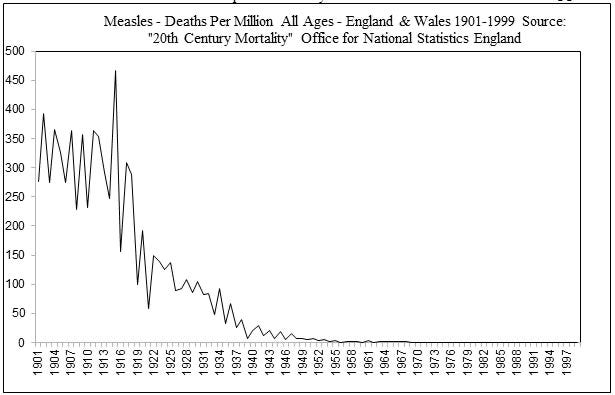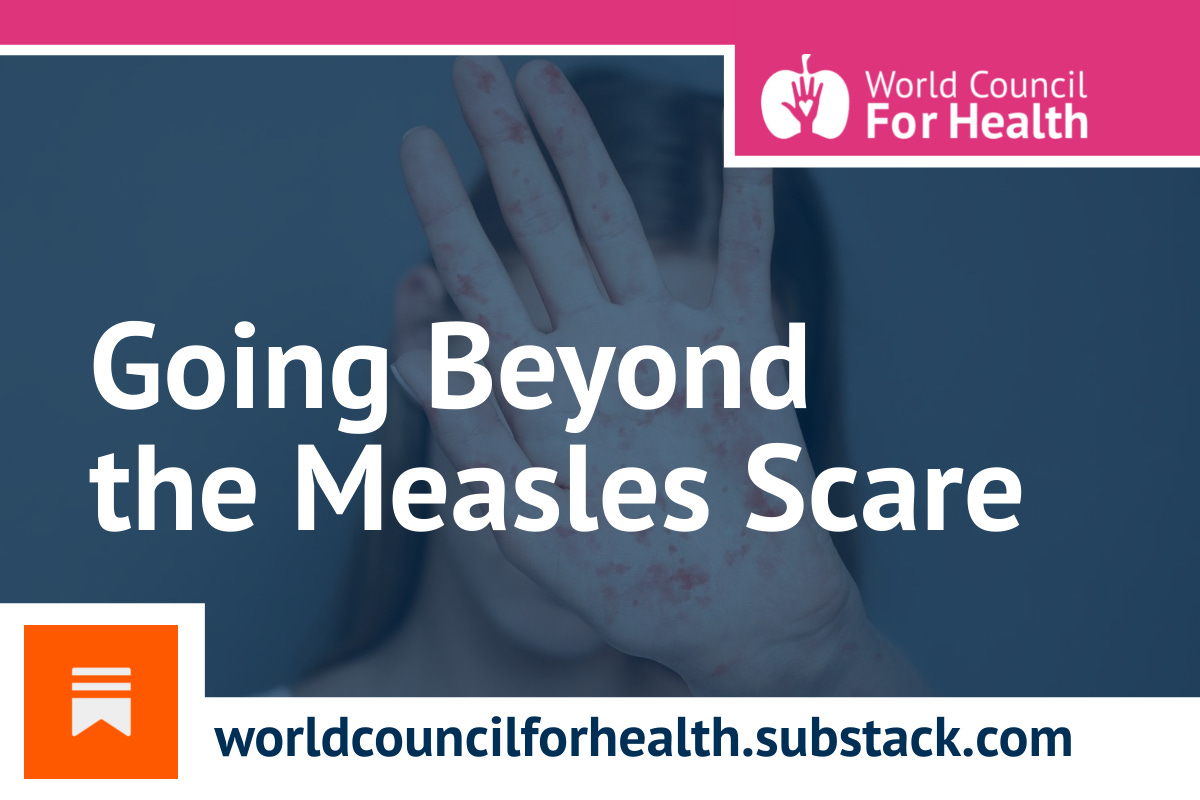Going Beyond the Measles Scare: Facts, Myths & Effective Strategies
Immunity depends upon a lot more than just antibodies.
Dr Jayne Donegan practised as a Medical Doctor for 40 years. In 1990 she began her studies in homeopathy and naturopathy and is now a registered Homeopathic and Naturopathic Practitioner. She is a member of the British Society of Ecological Medicine and a patron of the College of Naturopathic Medicine. In July 2023, after applying unsuccessfully for four years, she was eventually deregistered from the General Medical Council. She is now free to continue working as a holistic practitioner without having to adhere to NHS policies that she believes were not in the best interests of her patients.
In 2011, Dr Donegan wrote a comprehensive article, Measles Outbreaks: The Song Remains the Same, for The Informed Parent. Christoph Plothe DO, Health and Science Lead for the World Council For Health, asked Dr Donegan to share her insights regarding recent measles scares on Better Way Today on 25 March 2024.
What’s causing the measles scare?
In the UK we are told that the recent measles scare is due to lower rates of vaccine uptake. These low rates are not surprising: during the Covid event doctors’ surgeries were closed, reducing access to these services. We also saw during Covid that making people afraid is one of the best ways to ensure compliance – so now the health authorities are trying to increase vaccination rates by threatening that children are going to die of measles. Dr Donegan denies that there is a measles emergency, but notes that – just like during Covid – nobody is informing the public about effective ways of managing measles or other diseases that result in fevers.
Were vaccines really the cure?
Dr Donegan points out that there is a lot more to immunity than antibodies generated by vaccines, and long before vaccines were developed, death rates from measles had been plummeting. This is not the story we have been told – or that doctors have been educated to believe. Instead we have learnt that the MMR vaccine is a lifesaving intervention that will protect us all from measles.

In the Immunisation Against Infectious Diseases Handbook, which provides guidance on vaccination to doctors, is a graph showing measles-related deaths in England and Wales. The graph starts in 1940, with the zigzag pattern reflecting the fact that measles epidemics normally occur about every two years. After introduction of the original measles vaccine in 1968 cases do appear to decline; and they continue to do so after introduction of the MMR vaccine.
Looking at this graph, it is clear why people believe that the measles vaccine was responsible for the decrease in measles-related deaths, but we need to look more deeply into the evidence. For instance, what the graph actually indicates is an association in time – not causality. Also, what is not stated is that, when the measles vaccine was first introduced, there was only a 30% uptake. Most parents didn’t see the point of the vaccine as measles was just a normal childhood disease, like chickenpox. Uptake of the vaccine only exceeded 50% in 1980, and it was only in the 1990s that uptake rates for all vaccines rose above 90%.
Dr Donegan herself had accepted without question graphs such as this in her medical textbooks. It was only once she started studying homeopathy and hearing that death rates had started to decline before the vaccines were introduced, that she started questioning her assumptions and researching the issue more deeply. Eventually, on an old CD-ROM from the Office for National Statistics (ONS), she found data that enabled her to produce a graph of measles mortality for the whole of the 20th Century.

Even before antibiotics became widely available, measles deaths were declining precipitously. By 1940 (the starting point of the graph in the medical textbook) – and certainly by the time the vaccine was introduced in 1968 – the number of deaths was almost negligible. Of course, sometimes people with underlying medical conditions, or those not properly treated (e.g. for fever) do die of measles and other infectious diseases. But they are the exceptions.
In developed regions, a great many diseases have declined not due to vaccines but due instead to the provision of clean water, removal and treatment of sewage, better nutrition, and improved indoor air quality. Indeed, in countries lacking these services, many children do still die of measles because these conditions undermine their general health and weaken their immune systems. Emeritus Professor Thomas McEwan, a past Chair of WHO’s Health Research Strategy Committee, stated that the radical decline in child mortality between the 1850s (approx. 1,000 per million) and 1960s (almost zero) in England and Wales was due not to physicians, but to surgeons and hygiene.
Making an informed decisions
As we know, governments use fear to pressurise parents to have their children vaccinated, even though graphs like the one above clearly show that the risk of death and the efficacy of vaccines have been exaggerated. Over the past 30 years it has become more difficult for parents to make the decision not to vaccinate their children but to allow them to contract a disease and develop strong, long-lasting natural antibody immunity. In the case of a future mother, natural immunity will also confer immunity onto her child for the first 18 months of life by means of transplacental antibodies! Insights such as these help parents make choices based on science rather than fear.
Something else that can help us decide whether or not to have ourselves or our children vaccinated is to research what is in the vaccines, and their adverse effects (which are generally highly underreported). In the UK, the Electronic Medicines Compendium provides access to information on drugs and vaccines used to treat various diseases. By typing into your search engine ‘EMC’ plus the name of a disease, you will find the patient information leaflet (PIL) and the summary of product characteristics (SmPC) for the relevant medication, for example MMRVAXPRO for measles.
Knowing how to manage a fever – which is what people did to protect their children before the measles vaccine was introduced – can also empower parents who would prefer not to vaccinate their children. This makes sense when you consider that the risks of a serious vaccine adverse effects may be underreported by a factor greater than 100, and that babies and young children are subjected to multiple vaccines and boosters, increasing their individual risks.
Unlike babies born to mothers who themselves had measles as children, and whose long-lasting immunity protects the infant until 18 months of age, vaccine-derived antibodies are short-lived and not passed on from mother to baby. Prior to Covid, there was a measles scare in Europe; most of the children who died were actually babies below the age of 18 months born to MMR-vaccinated mothers.
It's about more than antibodies
It is important to recognise that immunity depends upon more than antibodies, which (with the lymphocytes) are part of the adaptive immune system that protects against specific pathogens and changed body cells. The innate immune system is the body's first line of defence operating at the skin and mucous membranes to protect against germs in general entering the body.
Something that few of us recognise is the importance of fever itself. In the 1950s, a General Practitioner, Dr Fry, reported that mothers were observing that their children did better after “a good dose of measles”. People at the time regarded diseases like measles and chickenpox as developmental steps. Ironically, going through these infections appropriately results in improvements, but avoiding them means that you miss out. Dr Donegan referred to an editorial in the British Medical Journal that stated that “autoimmunity is the price one pays for the eradication of infectious disease.” The author explained to Dr Donegan that the human immune system developed under the ‘insult’ of common childhood diseases; without having to deal with these challenges, the immune system doesn't learn.
Dr Donegan feels that we should let children have their normal childhood diseases and manage them properly – and this means not bringing down all their fevers with paracetamol or ibuprofen. According to a WHO bulletin from 2000, “fever is an ancient adaptive response for which there are a few, if any, good reasons to suppress.” As long as the patient remains alert, can communicate clearly, and sleep peacefully, the fever should be allowed to run its course. Indeed, the rise in body temperature increases the rate of detoxification by the liver, filtration of blood by the kidneys, and the immune response. And while the patient must drink enough during a fever, the natural tendency not to eat is a logical response, as it allows the gut to prioritise production of immune cells rather than focus on digestion.
This article is a taste of a fascinating discussion. We hope you will visit the World Council for Health’s Video Library to watch the whole episode ... including Health Coach Linda Rae’s short video on how to boost your immunity!
If you find value in this Substack and have the means, please consider making a contribution to support the World Council for Health. Thank you.







I use to agree with some of the vaccines and I have had my child and military vaccines. Since the Covid BS, no vaccines for 10yrs, and now for the rest of my life! Big pharma, CDC, WHO, health care is not be trusted!
Unfortunately, due to the widespread uptake of the measles vaccines, chances of unvaccinated children to get exposure to the measles pathogen are low in developed countries. Resulting in when unvaccinated children grow into adults, they are not protected to these pathogens like measles and chickenpox because of lack of exposure. How much more risky is it to get these diseases as a teen or adult?
This is often left out in the discussion and it is the next step parents of unvaccinated children have to consider. These parents of unvaccinated children or partly vaccinated children have hardly any sources to go to for advice on this matter. Good reliable information is hard to find and most likely not at your own GP practice. Doctors will not advice outside of the standard protocols leaving these parents to fend for themselves. I'd wish doctors who write articles as above, would discuss consequences and strategies that lie ahead for those having chosen the path of part or no vaccination.